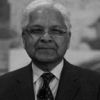Ashwani Kumar | It's now time to reclaim the moral centre of the nation
The erosion of a nurtured culture of tolerant coexistence questions our democratic resilience

The recent meeting of 19 Opposition parties held in a virtual format and with representation at the highest level could herald a transformative shift in India politics to reclaim the nation’s moral centre. The resolution adopted at the end of the online meeting signalled the Opposition parties’ “concerted resolve to defend the secular, democratic, republican order with all their might”. This convergence of views was inspired by the arithmetic of electoral politics and mood of the nation that demands a larger unity of purpose in aid of democracy and its concomitant values that are reminiscent of our constitutional moment.
The divisive and majoritarian agendas of the ruling establishment, which are incompatible with the preambular promise of fraternity, have shrunk the social space across India for bonding amongst fellow citizens as equal stakeholders in a shared destiny. The erosion of a nurtured culture of tolerant coexistence questions our democratic resilience. A majoritarian interpretation of constitutional guarantees premised on electoral majorities negate the first principles of
constitutionalism.
The unremitting persecution and silencing of the Opposition, systematic intimidation of civil society organisations and the undermining of democratic institutions interrogate the libertarian promise of our national charter. Arrogant indifference to constitutional morality that is understood in terms of the scrutiny of the exercise of public power and the expansion of fundamental freedoms have suborned the promise of responsive democracy, offering us instead “... a democratic language without the grammar of democratic punctuation”.
The “right to offend”, a key attribute of a functional democracy, has been bludgeoned and buried, courtesy the violence of the vigilantes and armed constabulary of the Indian State. The foisting of sedition charges against farmers questioning the unjust farm laws and against other innocent citizens, the detention without bail of political opponents and dissenters under the stringent national security laws enacted to deal with terrorists have robbed several laws of their legitimacy. The dysfunctionality of Parliament as a check against administrative excesses has denuded the administration of its moral claim to executive authority. The march of democracy rooted in social justice and conducive to human dignity has been reversed.
A free nation, which, in the infancy of its birth had aspired to become the “Vishwa Guru” on the basis of its soft power, stands internationally condemned after 2014 as an “elected autocracy” (Sweden based V-Dem institution). India was ranked at 111 out of 162 nations in the Human Freedom Index of 2020 and 142nd out of 180 nations in the World Press Freedom Index. Those who want to hide behind a false nationalist narrative to debunk the findings of independent global organisations of repute need only to look at the reality around them. The invasion of citizens’ privacy in different ways, including the Pegasus snooping and routine surveillance of the “inconvenient”, signal the government’s singular disdain for constitutional niceties.
A vast majority of our people are oppressed and diminished under the weight of rising unemployment and poverty. A Pew Research Centre study has estimated a 75 million rise in the number of poor people in the country with the middle class shrinking by 32 million in 2020. The poor, with their souls scarred and freedoms fettered, are, therefore entitled more than ever before to ask: “Atka kahan Swaraj?/ Bol Dilli! Tu ab kya kehti hai,/ Tu raani ban gayi, vedna janta kyun sehti hai?”
The poet’s lament about obstructions to freedom and the insensitivity of the power centres to the people’s pain retains a deafening echo in these troubled times. A pervasive feeling of suppressed freedom and its consequences is captured by Javed Akhtar in his compelling verse:
“Kisi ka hukm hai dariya ki lehren/ Zara yeh sarkashi kam karlein, apni hadd mein thehrein/ Ubharna phir bikharna aur bikhar kar phir ubharna/ Galat hai yeh unka hungama karna!”
“Kisi ko yeh koi kaise bataye/ hawayein aur lehren kab kisi ka hukm/ sunti hain hawayein hakimo ki mutthiyo mein hathkadi mein/ qaid-khano mein nahi ruktin/ yeh lehren roki jaati hain/ toh dariya kitna bhi ho pursukoon, betaab hota hai/ aur iss betabi ka agla qadam sailaab hota hai!”
In the disquieting context of the sustained assaults on freedom and democracy, the coming together of the Opposition is a welcome declaration of an awakened collective responsibility to push back the autocratic impulses of unrestrained power. The long and arduous battle ahead for freedom, equality and justice as integral to our cherished democracy will be a test of leadership.
It is evident that the initiative of the Congress president will need to be backed by the processes and practice of politics that inspire hope and faith in the exertions of the Opposition. It is also clear that those on the side of freedom will find themselves standing on the right side of history. And those who remain smug in the belief that the Opposition is incapacitated to lead due to its internal compulsions must learn from history that when the moment arises, “the crown always finds its way to the right head”. Whether this moment is close or distant will depend on the selflessness of leaders and their unfaltering pursuit of an ennobling project of national renewal. We know that it is in the defence of freedom that the nation’s suppressed soul will find utterance. For the vacillators, one may return to the poet’s interrogatory: “Takaaza hai maujon ka, toofan se khelo/ kab tak chaloge, kinare kinare!” (The waves beckon you to accept the challenge, for how long will you walk the easy path?)
